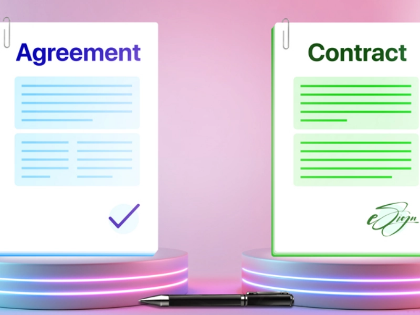Refinancing's Effect on Your Credit Score
You can reduce your monthly payment and save money by refinancing your mortgage. But it can also have an effect on your credit score, especially if you're refinancing a large amount of debt. This is due to the fact that refinancing often converts previous debt into new debt, which, in the event of late payments, may negatively impact your credit. Thankfully, the effects wear off fast and are rarely long-lasting.
The Thorough Investigation
 Usually, you have to reapply to your lender in order to refinance your loan. This leads to a hard credit inquiry, which momentarily lowers your credit score.
Approximately 10% of your three-digit credit score is attributed to the perception that a hard inquiry indicates that you are taking on new debt. As long as you make your new loan payments on time, the effect is only transitory and will disappear over the course of many months.
In order to get the best refinance rate, astute borrowers compare rates, which could lead to several hard inquiries. But many scoring models will treat them as one as long as the applications are submitted within a 14- to 45-day window. This lessens the harm caused by rate shopping.
Usually, you have to reapply to your lender in order to refinance your loan. This leads to a hard credit inquiry, which momentarily lowers your credit score.
Approximately 10% of your three-digit credit score is attributed to the perception that a hard inquiry indicates that you are taking on new debt. As long as you make your new loan payments on time, the effect is only transitory and will disappear over the course of many months.
In order to get the best refinance rate, astute borrowers compare rates, which could lead to several hard inquiries. But many scoring models will treat them as one as long as the applications are submitted within a 14- to 45-day window. This lessens the harm caused by rate shopping.
The latest credit
 In order to take advantage of lower interest rates, many customers refinance their student loans, auto loans, or mortgages. This may result in smaller monthly payments or more money being available for other needs. Refinancing also gives borrowers the option to extend their loan term or convert from variable to fixed interest rates.
About 15% of your credit score is derived from the length of your credit history, and lenders prefer to see a lengthy history of timely payments. Your score may suffer if you close your previous account and open a new one, because this can diminish your history.
A new loan may also lower your credit score by raising your credit usage ratio, which accounts for 30% of your score, and your total debt levels. Make sure you search around for your loan refinance with just a few different lenders to reduce this impact. Multiple lender inquiries for a car, house, or mortgage within 45 days are treated as a single query by FICO's most recent scoring model, which might lessen the effect on your credit.
In order to take advantage of lower interest rates, many customers refinance their student loans, auto loans, or mortgages. This may result in smaller monthly payments or more money being available for other needs. Refinancing also gives borrowers the option to extend their loan term or convert from variable to fixed interest rates.
About 15% of your credit score is derived from the length of your credit history, and lenders prefer to see a lengthy history of timely payments. Your score may suffer if you close your previous account and open a new one, because this can diminish your history.
A new loan may also lower your credit score by raising your credit usage ratio, which accounts for 30% of your score, and your total debt levels. Make sure you search around for your loan refinance with just a few different lenders to reduce this impact. Multiple lender inquiries for a car, house, or mortgage within 45 days are treated as a single query by FICO's most recent scoring model, which might lessen the effect on your credit.
The Fresh Credit Record
 Refinancing usually results in a new "open date" for your credit report. Because it indicates that you have taken on a new debt obligation, this could have a greater effect on your credit score than if the old loan were only changed.
Because the length of the account accounts for 15% of your FICO score, the new account can potentially result in a decline in your score. Since lenders favor older accounts, getting a new loan could temporarily lower your credit scores.
If you refinance your loan and pay off your entire debt load, you may eventually see an improvement in your credit score. Good credit practices are rewarded by FICO's scoring algorithm, so if you refinance and make your monthly payments on time, your scores should eventually rise. This is particularly valid if you refinance in order to reduce your monthly payment or interest rate. That ought to release some money for you to spend toward clearing your other debts.
Refinancing usually results in a new "open date" for your credit report. Because it indicates that you have taken on a new debt obligation, this could have a greater effect on your credit score than if the old loan were only changed.
Because the length of the account accounts for 15% of your FICO score, the new account can potentially result in a decline in your score. Since lenders favor older accounts, getting a new loan could temporarily lower your credit scores.
If you refinance your loan and pay off your entire debt load, you may eventually see an improvement in your credit score. Good credit practices are rewarded by FICO's scoring algorithm, so if you refinance and make your monthly payments on time, your scores should eventually rise. This is particularly valid if you refinance in order to reduce your monthly payment or interest rate. That ought to release some money for you to spend toward clearing your other debts.
The Transfers
 Taking out a new loan to pay off the old one is a common step in refinancing, which might raise your credit utilization rate or amount of debt. Your credit score can be negatively impacted by this.
Applying for many refinance loans in a short amount of time may be interpreted by credit rating agencies as a lot of activity on your report, which could be detrimental. If you pay off your loan early, you can also be assessed a prepayment penalty, which would offset any financial gain from refinancing.
Refinancing may make sense in a variety of circumstances, such as when interest rates have decreased or you wish to move to a shorter loan term in order to reduce interest costs. But it's crucial to thoroughly analyze the advantages and disadvantages while taking into account your unique circumstances. The best course of action for raising your credit score following a refinancing is to consistently make on-time payments on your new loan.
Taking out a new loan to pay off the old one is a common step in refinancing, which might raise your credit utilization rate or amount of debt. Your credit score can be negatively impacted by this.
Applying for many refinance loans in a short amount of time may be interpreted by credit rating agencies as a lot of activity on your report, which could be detrimental. If you pay off your loan early, you can also be assessed a prepayment penalty, which would offset any financial gain from refinancing.
Refinancing may make sense in a variety of circumstances, such as when interest rates have decreased or you wish to move to a shorter loan term in order to reduce interest costs. But it's crucial to thoroughly analyze the advantages and disadvantages while taking into account your unique circumstances. The best course of action for raising your credit score following a refinancing is to consistently make on-time payments on your new loan.













